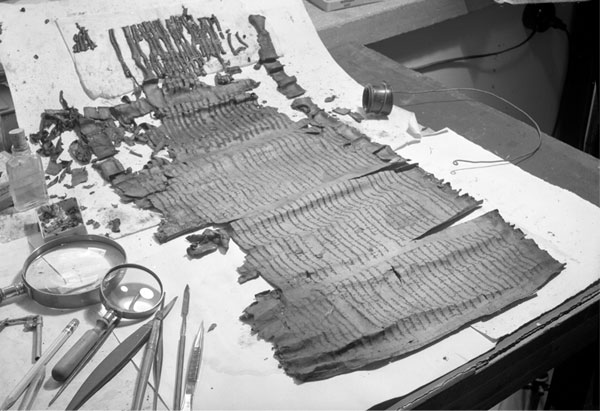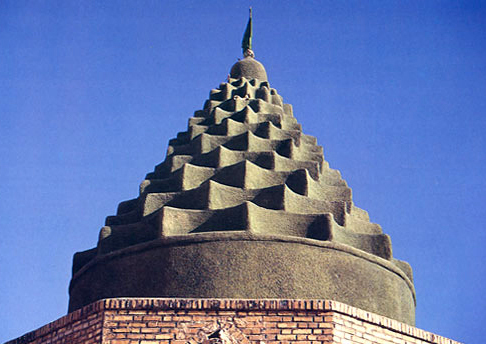|
Qulasta
The Qulasta, also spelled Qolastā in older sources ( myz, ࡒࡅࡋࡀࡎࡕࡀ, translit=Qulasta; mid, Qōlutā, script=Latn), is a compilation of Mandaean prayers. The Mandaic word ''qolastā'' means "collection". The prayerbook is a collection of Mandaic prayers regarding baptisms ('' masbuta'') and other sacred rituals involved in the ascension of the soul ('' masiqta''). In Mandaic, individual prayers are generally called ''buta'' (plural form: ''bawata''), although some prayers also known as ''qaiamta'', ''šrita'' (loosing or deconsecration prayers), and other Mandaic designations. There is no standardized version of the Qulasta; different versions can contain varying numbers of prayers, and ordering of the prayers can also vary. The most commonly Qulasta versions are those of E. S. Drower (1959 English translation) and Mark Lidzbarski (1905 German translation). Eric Segelberg (1958) contains a detailed study of many of the first 90 Qulasta prayers (many of which are ... [...More Info...] [...Related Items...] OR: [Wikipedia] [Google] [Baidu] |
Mandaean Priest Initiation 10
Mandaeans ( ar, المندائيون ), also known as Mandaean Sabians ( ) or simply as Sabians ( ), are an ethnoreligious group who are followers of Mandaeism. They believe that John the Baptist was the final and most important prophet. They may have been among the earliest religious groups to practice baptism, as well as among the earliest adherents of Gnosticism, a belief system of which they are the last surviving representatives today. The Mandaeans were originally native speakers of Mandaic, an Eastern Aramaic language, before they nearly all switched to Iraqi Arabic or Persian as their main language. After the invasion of Iraq by the United States and its allies in 2003, the Mandaean community of Iraq, which before the war numbered 60,000-70,000 persons, collapsed due to the rise of Islamic extremism and the absence of protection against it; with most of the community relocating to Iran, Syria and Jordan, or forming diaspora communities beyond the Middle East. Mandea ... [...More Info...] [...Related Items...] OR: [Wikipedia] [Google] [Baidu] |
German Language
German ( ) is a West Germanic languages, West Germanic language mainly spoken in Central Europe. It is the most widely spoken and Official language, official or co-official language in Germany, Austria, Switzerland, Liechtenstein, and the Italy, Italian province of South Tyrol. It is also a co-official language of Luxembourg and German-speaking Community of Belgium, Belgium, as well as a national language in Namibia. Outside Germany, it is also spoken by German communities in France (Bas-Rhin), Czech Republic (North Bohemia), Poland (Upper Silesia), Slovakia (Bratislava Region), and Hungary (Sopron). German is most similar to other languages within the West Germanic language branch, including Afrikaans, Dutch language, Dutch, English language, English, the Frisian languages, Low German, Luxembourgish, Scots language, Scots, and Yiddish. It also contains close similarities in vocabulary to some languages in the North Germanic languages, North Germanic group, such as Danish lan ... [...More Info...] [...Related Items...] OR: [Wikipedia] [Google] [Baidu] |
Rahma (Mandaeism)
In Mandaeism, a rahma ( myz, ࡓࡀࡄࡌࡀ; plural form: ''rahmia'' ) is a daily devotional prayer that is recited during a specific time of the day or specific day of the week. Translations E. S. Drower's version of the Qolasta, the ''Canonical Prayerbook of the Mandaeans'', has 64 rahma prayers translated into English that are numbered from 106 to 169. In Drower's ordering, the rahma prayers directly follow the ''Asiet Malkia'' prayer (''CP'' 105), while the '' Ṭabahatan'' prayer (''CP'' 170) comes after the rahma prayers. Part 1 of the Oxford Collection in Mark Lidzbarski's '' Mandäische Liturgien'' (1920) contains 60 rahma prayers translated into German that correspond to prayers 106–160 and 165–169 in Drower (1959).Lidzbarski, Mark. 1920. ''Mandäische Liturgien''. Abhandlungen der Königlichen Gesellschaft der Wissenschaften zu Göttingen, phil.-hist. Klasse, NF 17.1. Berlin. List of rahma prayers Below, ''Oxford'' refers to Lidzbarski's (1920) numbering, while ' ... [...More Info...] [...Related Items...] OR: [Wikipedia] [Google] [Baidu] |
Masiqta
The masiqta ( myz, ࡌࡀࡎࡉࡒࡕࡀ) is a mass or ritual practiced in the Mandaean religion in order to help guide the soul (''nišimta'') towards the World of Light in Mandaean cosmology. They are typically performed as funerary rites for Mandaeans who have just died. Although usually translated as "death mass", a few types of ''masiqta'' are also performed for living people, such as when priests are ordained. Purpose The complex ritual involves guiding the soul through the ''maṭarta'', or toll houses located between the Earth (Tibil) and the World of Light, which are guarded by various uthras and demons. A successful masiqta merges the incarnate soul ( myz, ࡍࡉࡔࡉࡌࡕࡀ ; roughly equivalent to the ''psyche'' or " ego" in Greek philosophy) and spirit ( myz, ࡓࡅࡄࡀ ; roughly equivalent to the ''pneuma'' or "breath" in Greek philosophy) from the Earth (Tibil) into a new merged entity in the World of Light called the ''ʿuṣṭuna''. The ''ʿuṣṭuna'' can ... [...More Info...] [...Related Items...] OR: [Wikipedia] [Google] [Baidu] |
Masbuta
Maṣbuta ( myz, ࡌࡀࡑࡁࡅࡕࡀ) is the ritual of immersion in water in the Mandaeism, Mandaean religion. Overview Mandaeans revere John the Baptist and practice frequent baptism (''masbuta'') as a Ritual purification, ritual of purification, not of initiation. They are possibly one of the earliest peoples to practice ritual baptism. Mandaeans undergo baptism on Sundays (''Habshaba''), wearing a white sacral robe (''Rasta (Mandaeism), rasta''). Baptism for Mandaeans consists of a triple full immersion in water, a triple ''signing'' of the forehead with water and a triple drinking of water. The priest (''Mandaean priest, rabbi'') then removes a ring made of myrtle (''klila'') worn by the baptized and places it on their forehead. This is then followed by a handshake (''kušṭa'' - hand of truth) with the priest. The final blessing involves the priest laying his right hand on the baptized person's head. ''Living water'' (fresh, natural, flowing water, called ''mia hayyi'') is ... [...More Info...] [...Related Items...] OR: [Wikipedia] [Google] [Baidu] |
Majid Fandi Al-Mubaraki , a family of crabs
{{Disambiguation ...
Majid or majeed may refer to: * , ''majīd'' 'majestic', and , ''mājid'' 'magnificent', two names of God in Islam Arts and entertainment * ''Majid'' (film), a 2010 Moroccan film *Majid (rapper) (born 1975), a Danish rapper of Moroccan-Berber origin *Majid Jordan, a Canadian R&B duo *Majid (comics), a pan-Arab comic book anthology and children's magazine Other uses *Majid (name), or variant spellings, including a list of people with the given name or family name *Majid, Iran (other), a number of places in Iran *Majeed syndrome, an inherited skin disorder See also * * * * *Majd (other) *Majidae Majidae is a family of crabs, comprising around 200 marine species inside 52 genera, with a carapace that is longer than it is broad, and which forms a point at the front. The legs can be very long in some species, leading to the name "spider cra ... [...More Info...] [...Related Items...] OR: [Wikipedia] [Google] [Baidu] |
Carlos Gelbert
Carlos Gelbert (born 1948) is an Australian writer and translator. He is best known for publishing the first full-length English translations of the Ginza Rabba (2011) and Mandaean Book of John (2017). Gelbert has also translated the Ginza Rabba (2021) and Qolasta (2002) into Arabic. Biography Gelbert was born in 1948 in Basra, Iraq. During the Saddam Hussein era, he moved to Germany, where he worked as a teacher and occupational therapist. Gelbert immigrated to Australia in the 1990s and currently resides in the Sydney metropolitan area. Books authored Below is a list of books authored by Gelbert. Mandaean texts *2002. '' Mandaean Prayers and Hymns''. . (Arabic; Mandaic in original script) *2011. '' Ginza Rba''. . (English) *2017. '' The Teachings of the Mandaean John the Baptist''. . (English) *2021. '' Ginza Rba''. . (Arabic; Mandaic transliterated in Arabic script) Mandaeism *2003. ''A Letter to My Son''. . *2005. ''The Mandaeans and the Jews''. . *2009. ''Jesus whos ... [...More Info...] [...Related Items...] OR: [Wikipedia] [Google] [Baidu] |
Khuzistan
Khuzestan Province (also spelled Xuzestan; fa, استان خوزستان ''Ostān-e Xūzestān'') is one of the 31 provinces of Iran. It is in the southwest of the country, bordering Iraq and the Persian Gulf. Its capital is Ahvaz and it covers an area of . Since 2014, it has been part of Iran's Region 4. Historically, one of the most important regions of the Ancient Near East, Khuzestan is what historians refer to as ancient Elam, whose capital was in Susa. The Achaemenid Old Persian term for Elam was ''Hujiyā'' when they conquered it from the Elamites, which is present in the modern name. Khuzestan, meaning "the Land of the Khuz", refers to the original inhabitants of this province, the "Susian" people (Old Persian "Huza" or ''Huja'', as in the inscription at the tomb of Darius the Great at Naqsh-e Rostam). They are the Shushan of the Hebrew sources where they are recorded as "Hauja" or "Huja". In Middle Persian, the term evolves into "Khuz" and "Kuzi". The pre-Islamic Parth ... [...More Info...] [...Related Items...] OR: [Wikipedia] [Google] [Baidu] |
Hoveyzeh
Hoveyzeh ( fa, هویزه; ar, الهويزة also romanized as Huwaiza, Havizeh, Hawiza, Hawīzeh, Hovayze, and Hovayzeh; also known as Hūzgān or Khūzgān) is a city and capital of Hoveyzeh County, Khuzestan Province, Iran. At the 2006 census, its population was 14,422, in 2,749 families. See also * Iran–Iraq war * Khorramshahr * Susangerd * Shadegan Shadegan ( fa, شادگان; also Romanized as Shādegān and Shādgān; formerly, Fallehiyeh, Fallābīyeh, and Fallāḩīyeh (فلاحية)) is a city and capital of Shadegan County, Khuzestan Province, Iran Iran, officially the ... * Bostan References Populated places in Hoveyzeh County Cities in Khuzestan Province Arab settlements in Khuzestan Province {{Hoveyzeh-geo-stub ... [...More Info...] [...Related Items...] OR: [Wikipedia] [Google] [Baidu] |
Yahia Bihram
Yahya Bihram (also spelled Yahia Bihram; myz, ࡉࡀࡄࡉࡀ ࡁࡉࡄࡓࡀࡌ) was a 19th-century Mandaean priest. Although initially a learned layman (''yalufa''), he became known for reviving the Mandaean priesthood after a cholera epidemic had killed all living Mandaean priests in 1831. He is mentioned in the colophons of various Mandaean manuscripts. Early life Yahya Bihram was born around 1811 as the son of the Mandaean ''ganzibra'' (high priest) Adam Yuhana ( myz, ࡀࡃࡀࡌ ࡉࡅࡄࡀࡍࡀ), and belonged to the Qindila ("lamp"), Kamisia, and Riš Draz families. His father, Adam Yuhana, had previously served as an informant for the British Vice-Consul John George Taylor in Basra and taught him to read the ''Ginza Rabba''. Adam Yuhana also copied the manuscripts DC 12, 38, 39, 41, and 53, which are now held at the Bodleian Library's Drower Collection. Yahya Bihram spent his childhood in Basra, in his father's large house next to Taylor's house. Taylor collected var ... [...More Info...] [...Related Items...] OR: [Wikipedia] [Google] [Baidu] |




